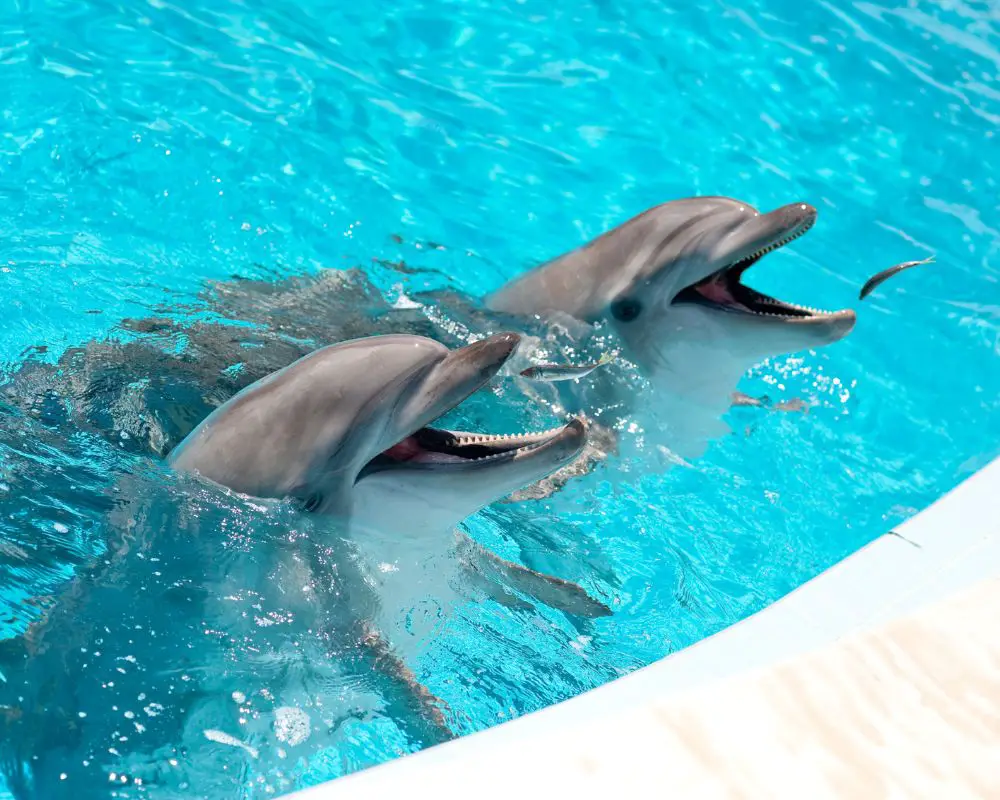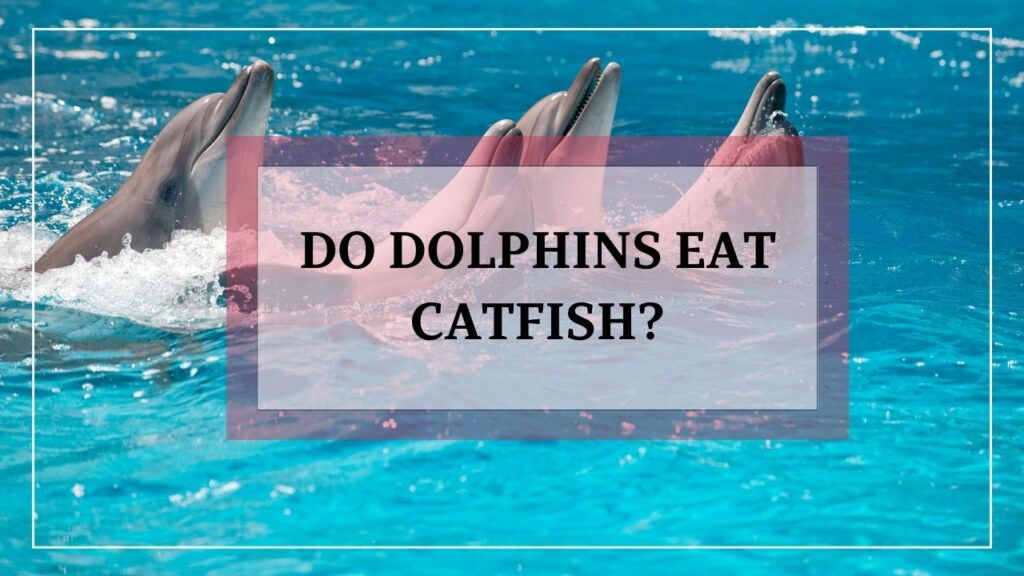Have you ever wondered what dolphins eat? If you’re like most people, you might imagine that these intelligent marine mammals primarily feed on fish and squid. But did you know that dolphins also have a taste for catfish?
Now, before you dismiss this as some kind of oddball anomaly, let me tell you that this is actually a fairly common behavior among dolphins.
In this article, we’re going to explore the fascinating world of dolphin diets, with a particular focus on their relationship with catfish.
By the end of this post, you’ll have a better understanding of what dolphins eat, why they choose certain prey items over others and the potential impacts of their dietary choices on the larger ecosystem of the ocean.
Can Dolphins Eat Catfish?

Yes, they certainly can! While dolphins are known for their affinity for fish and squid, they are opportunistic feeders and will eat a wide range of prey items if they are available. This includes catfish, which are actually a fairly common food source for dolphins in certain regions.
For those of you who may not be familiar with catfish, let me give you a quick rundown. Catfish are a type of freshwater fish that are found in rivers, lakes, and other bodies of water throughout the world. They are bottom-dwelling fish and are known for their distinctive whiskers (also known as barbels) that they use to sense their surroundings and find food.
Now, you might be wondering why dolphins would choose to eat catfish instead of other fish that might be more readily available. Well, there are a few factors at play here.
First of all, catfish tend to be slower-moving fish that are easier for dolphins to catch.
Additionally, catfish are high in protein and fat, making them a nutritious meal for these marine mammals.
Catfish As Potential Prey For Dolphins
When it comes to catching catfish, dolphins have been known to use a variety of techniques. For example, some dolphins will use their sonar to detect the fish hiding at the bottom of the river or lake, then dive down and use their speed and agility to snatch them up in their jaws. Other dolphins have been observed using their tails to create a wave that washes the catfish out of hiding and into open water, where they can be more easily caught.
While the prevalence of catfish in a dolphin’s diet can vary depending on their location and the availability of other prey items, there have been numerous documented instances of dolphins eating catfish. For example, researchers have observed pink river dolphins feeding on catfish, while bottlenose dolphins in Florida’s Indian River Lagoon have been known to eat both channel catfish and flathead catfish.
Potential Benefits and Risks of Eating Catfish for Dolphins
Now that we know that dolphins do indeed eat catfish, let’s take a closer look at the potential benefits and risks of this dietary choice.
Benefits Of Eating Catfish
As mentioned earlier, catfish are a good source of protein and fat for dolphins. This makes them a valuable food source, especially in areas where other prey items may be scarce.[1]
Additionally, since catfish are bottom-dwelling fish, they can provide a change of pace for dolphins who may be used to chasing after faster-moving prey like small fish and squid.
Risks Of Eating Catfish
While catfish can be a nutritious food source for dolphins, there are also some potential risks associated with eating them. For one thing, catfish are known to contain high levels of mercury, which can be harmful to marine mammals and other animals if consumed in large quantities.
Additionally, since catfish are bottom-dwelling fish, they can sometimes be exposed to pollutants and other contaminants that can accumulate in their tissues and potentially harm dolphins who eat them.
Balancing The Benefits And Risks
Given the potential risks associated with eating catfish, it’s important for dolphins to have a varied diet that includes a range of prey items.
This can help to ensure that they are not relying too heavily on any one type of food and potentially exposing themselves to harmful substances.
Additionally, researchers and conservationists can help to monitor dolphin populations and their prey items to better understand the risks and benefits associated with their diet.
Factors Affecting Dolphin Diet Regarding Catfish
While we now know that dolphins can eat catfish, their diet can vary widely depending on a number of factors.
Geographic Location Of Dolphins
One of the biggest factors affecting dolphin diets is their geographic location. Different populations of dolphins can be found in different parts of the world, and the prey items available to them can vary widely depending on their environment.
For example, dolphins in the Atlantic Ocean may have access to different types of fish and other prey than dolphins in the Pacific Ocean.
Migration Patterns
Dolphins are also known to migrate seasonally in search of food. During these migrations, their diet may shift depending on the availability of prey items along their route.
For example, dolphins in the eastern Pacific may migrate southward during the winter in search of squid, which can be a valuable food source for them during that time of year.
Available Prey In Different Habitats
The type of habitat in which dolphins live can also play a role in their diet. In shallow, coastal areas, dolphins may have access to different types of fish and invertebrates than they would in deeper offshore waters.
Additionally, the presence of other predators in their environment can also affect the availability of prey items for dolphins.
Human Impact On Dolphin Diet
Finally, it’s worth noting that human activities can also impact dolphin diet. Overfishing and other unsustainable fishing practices can deplete the prey items available to dolphins, making it harder for them to find enough food.
Additionally, pollution and other environmental factors can harm the health of prey items, making them less nutritious or even toxic for dolphins to eat.
Conclusion
So, can dolphins eat catfish? The answer is yes, they can, but it’s not a common prey item for them. Dolphins are opportunistic predators, and they will eat whatever prey is available to them in their environment.
While catfish are not a significant part of a dolphin’s diet, they are still an option for them in certain habitats.

